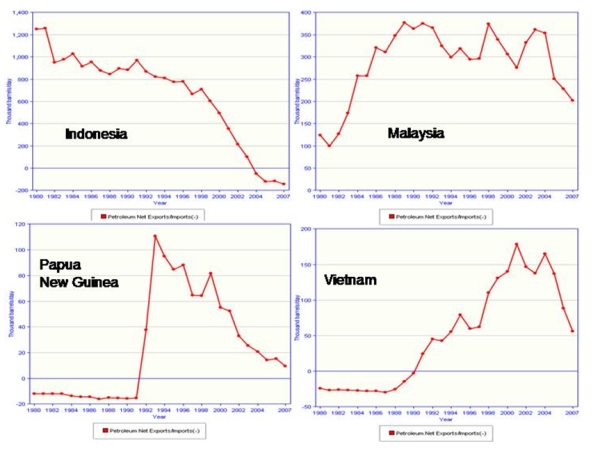Introduction
An election commitment of the Rudd Labor Government was to develop an assessment of Australia’s future energy security. This resulted in the release of the National Energy Security Assessment (NESA) in March 2009. The liquid fuels section of the NESA was largely based on the findings of ACIL Tasman’s Liquid Fuel Vulnerability Assessment (LFVA).
Given the importance of liquid fuels to both the global and Australian economy, it is reasonable to expect that the Australian Government would provide a realistic appraisal of Australia’s future liquid fuels security. Both the LFVA and the NESA fail to address key questions resulting in a liquid fuels security assessment that is unduly optimistic. This post will explore the key weaknesses of the NESA and propose an alternative, more realistic assessment of Australia’s liquid fuels security.
What is energy security?
The Department of Resources Energy & Tourism defines energy security as the adequate, reliable and affordable supply of energy to support the functioning of the economy and social development, where:
Advertisement
- adequacy is the provision of sufficient energy;
- reliability is the provision of energy with minimal disruptions to supply; and
- affordability is the provision of energy at a price which does not adversely impact on the economy and supports investment in the energy sector.
The NESA further defines the level of energy security using classifications of high, moderate and low. The definitions are:
- low is when the needs of Australia are not, or might not be met;
- moderate is when the needs of Australia are being met, however there are issues that will need to be addressed to maintain this level of security;
- high energy security is when the needs of Australia are being met.
Australia’s liquid fuels security out to 2023 according to the NESA is shown below:
| |
Current |
2013 |
2018 |
2023 |
| Adequacy |
High |
High |
High |
Moderate |
| Reliability |
High |
High |
High |
Moderate |
| Affordability |
Moderate |
Moderate |
Moderate |
Moderate |
| Overall |
High |
High |
High |
Moderate |
Advertisement
Analysis inadequacies
The NESA acknowledges that Australia’s dependence on oil imports will increase due to declining domestic production and demand growth. However it does not consider the status of oil exporting nations nor the geopolitical feedback loops that are likely to impact upon liquid fuels security.
As an example, the oil exports from four of the top five countries that Australia imports oil from are in decline, as shown in the following charts, sourced from the US Department of Energy’s Energy Information Administration (EIA).

Discuss in our Forums
See what other readers are saying about this article!
Click here to read & post comments.
6 posts so far.